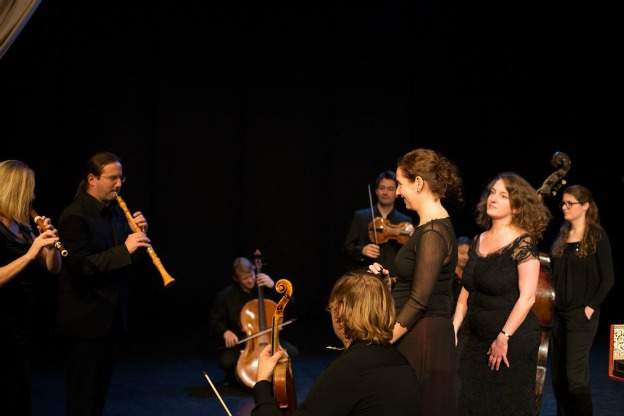
The Munich Baroque Soloists released two recordings this year. The first features music from one of the Baroque era’s all-time favorite composers, Antonio Vivaldi; the second explores concertos by the little known Johann Zach.
Antonio Vivaldi
The Vivaldi recording opens with a chamber concerto for flute, oboe, violin, bassoon and continuo; it closes with another of the same configuration. In between are solo concertos that feature several of these instruments individually—the highlights being the concertos that featured the double reeds. Katrin Lazar performs Vivaldi’s B flat major bassoon concerto.
Other especially nice tracks on the disc include Dorothea Seel in the 2nd movement of the D major flute concerto presented with an easy and a subtle inégalité, Robin Michael and the very cleanly played g minor cello concerto, and the clear and unhindered sound of Andreas Helm in the C major oboe concerto.
Of the two chamber concertos, the one that closes the program was most engaging. In these chamber concertos, Vivaldi writes as if for a good jazz combo, alternating in and out of solos that show off each instruments best qualities.
This is the Munich Baroque Soloists first recording, and it’s a really solid one—thoughtfully expressed and carefully nuanced.
Johann Zach
Zach’s style is different than Vivaldi’s, and he’s also a little later in the music history timeline—just how much later, though, isn’t immediately clear. There’s some question concerning Johann Zach’s birth date. Most dictionaries list it as 1699, but the Munich Baroque Soloists clearly list a 1713 birth date in their program booklet.
Zach’s birth date has long been in question; a 19th c. biography said he was born maybe about 1705. Then, another researcher, Karl Michael Komma in the 1930s found evidence that he thought pointed to a birth date of 1699, and that’s what all the records have since reported. But research and discovery is ongoing, and dictionaries—even respected ones—aren’t always infallible. Recently, Tomás Slavicky found a record in the archive of the Prague Convent of the Brothers of Saint John of God that indicated the Zach born in 1699 wasn’t the composer in question but rather his cousin by a similar name.
The performance of Zach’s G major flute concerto is noteworthy as it is recorded here for the first time in its original configuration with basset horns in the orchestra rather than natural horns.









